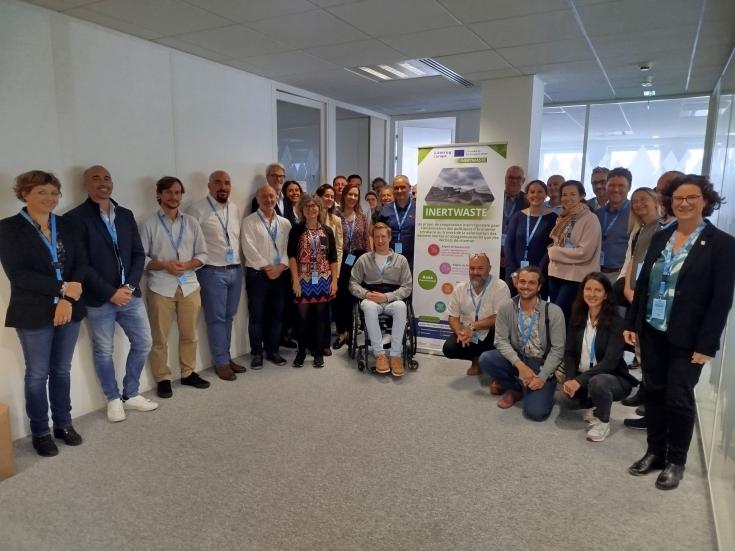Integrating circular economy in contracts: TLJ#3's learning

How to promote and support the integration of the circular economy in construction contracts for a better management of construction waste?
This question guided INERTWASTE partners and stakeholders throughout the third Transnational Learning Journey of the project. The host, Region Provence-Alpes-Côte d'Azur (Region Sud), prepared a full programme including presentation of relevant good practices at international and local level, interactive exchange on the French situation, a working session on how to increase the circular flow of waste, and two study visits to understand how recycling of inert waste is done in practice by operators.
The numerous discussions during all these sessions led to the following conclusions:
- Reused or recycled materials are not yet competitive enough compared to virgin materials. Public procurement can help overcome this and drive the market to take up these secondary materials. Regional circular economy strategies are also a useful instrument to increase the demand for these materials.
- The construction sector is a conservative sector and therefore there is a lot of resistance and skepticism towards secondary materials. A lot of testing and pilot projects can help overcome this resistance and convince practitioners and operators about the viability and sustainability of these materials. Fostering continuous dialogue with control authorities and other stakeholders in the supply chain can also help unlock the transition.
- Interregional exchange is a useful tool to gather new perspectives, but it is sometimes not easy to implement the suggestions received by partners and stakeholders due to a lack of regulatory power and fragmentation of laws and regulations on construction and demolition waste at different levels (EU, regional, local).
The TLJ was followed by an additional bilateral meeting between Region Sud (FR) and Navarra (ES). The purpose of this meeting was for the Navarra delegation to collect further information on some of the good practices and regulations presented by Region Sud. The input gathered during this bilateral visit will help Navarra advance the reflections on the improvement of its own policy instrument.